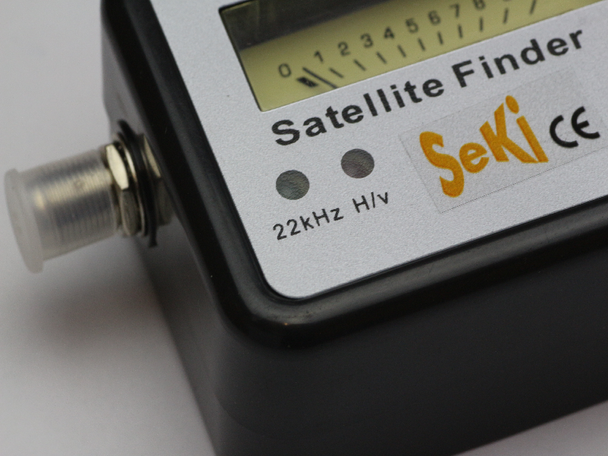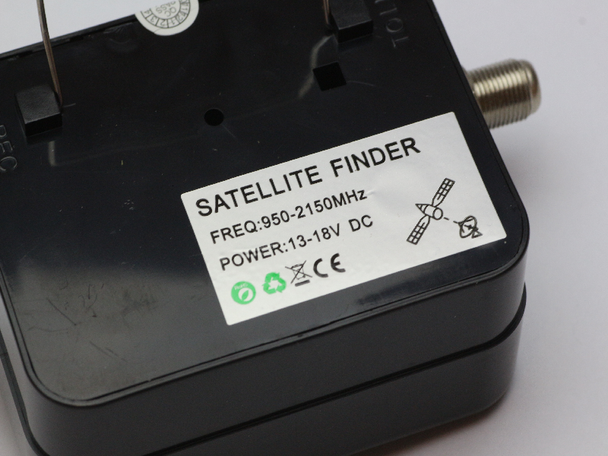Description
This alignment meter is exactly what the novice needs to align any satellite dish for optimum reception. It can be used for both digital and analogue reception and can save you a fortune in call out charges from satellite installers! Once you get the hang of using this you will wonder why you never gave it a go before! This handy little meter is a bargain price compared to high street shops!
Let's have a look at exactly what you get when you purchase this meter:
- Seki Satellite signal meter with moving coil meter, backlit display and audible alignment tone
- LED indicators for 22KHz tone and polarity
- Meter housed in a tough white cardboard box for safe storage and protection
- English instruction sheet
Optimal alignment of a satellite dish is essential for trouble free reception. Movement of only a few millimeters can have a drastic effect on the signal strength and you will be rewarded with the message "no satellite signal present" on your television screen.
A satellite dish has two main alignment adjustments, the azimuth which is the left to right or east to west position. The other adjustment is the elevation which is the up and down tilt of the dish. Using a compass you can set the azimuth to the correct value, for example 28.2 degrees east of south for Astra 2D which is the Sky / Freesat satellite. The elevation is then adjusted to the correct value using the scale on the dish bracket if it has one. If there is no scale or you have no compass then you can copy another satellite dish close by or simply use trial and error. If you initially set the azimuth correctly using a compass then the elevation is an easy adjustment. Failure to set the azimuth correctly will cause you to align the dish on the wrong satellite.
When you have set the approximate position of the dish you can use the satellite signal meter to peak the signal and correct minor errors in your azimuth adjustment. The signal meter has a back-lit display and an audible tone to assist alignment. The higher the tone the stronger the signal.
The led indicators also show wheteher the 22KHz tone has been applied and the polarity selected. This is useful in troubleshooting an LNB which will not switch to the high band.
Firstly though, the signal meter needs line power as the LNB will not function unless it has power. This is supplied by the satellite receiver via the dish feed cable. You need to have your satellite receiver switched on and not in standby.
The next stage is to connect the LNB to the signal meter using the supplied patch cable which has F connectors fitted at both ends. You will hear an audible tone from the meter but if not you need to slowly the move the dish left to right and up and down until you see a deflection of the meter needle and a hear a tone. The alignment procedure is a combination of obtaining a tone and then adjusting the sensitivity control on the meter to reduce the signal strength. You then slightly alter the dish position to again peak the signal and eventually you will obtain the maximum signal strength possible. Finally tighten all bolts on the dish ensuring it does not move slightly when you do this.
Additional Information
Product Information: |
Quality Seki Satellite Alignment Meter |
Product Information: |
Backlit moving coil meter with audible tone for peaking the signal |
Product Information: |
Powered by the satellite receiver so no batteries required |
Product Information: |
LED indication of 22kHz tone and polarity |
Product Information: |
Variable sensitivity for peaking the signal from the dish |
























